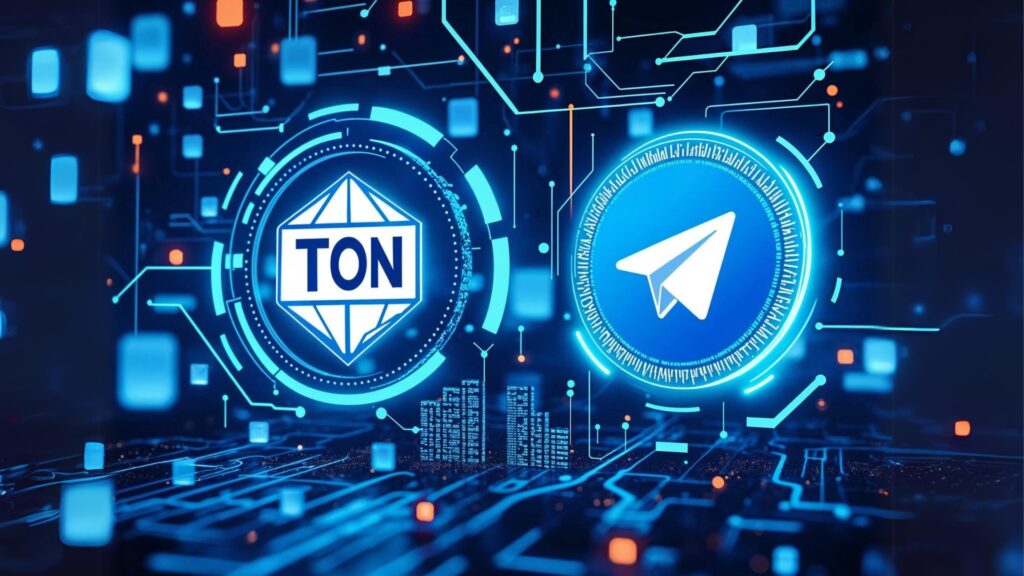Introduction
Pavel Durov, the visionary behind Telegram and the TON blockchain, has long been a proponent of privacy and freedom of expression on the internet. However, his recent arrest in France has cast a spotlight not only on him but also on the broader issues of internet governance, the responsibility of tech entrepreneurs, and the future of decentralized technologies. This article delves into the circumstances surrounding Durov’s arrest, the legal and social implications, and the potential impacts on Telegram, TON, and the broader blockchain ecosystem.
The Arrest: A Turning Point in Internet Governance?
On August 25, 2024, the tech world was jolted by the news of Pavel Durov’s arrest at Le Bourget Airport, just outside Paris. Durov had been returning from Azerbaijan, likely unaware that legal challenges awaited him in France. The arrest stemmed from an investigation into allegations that Telegram had been used as a platform for criminal activities, including money laundering, drug trafficking, and other serious offenses. The charges were tied to Telegram’s policy of minimal content moderation, which, while protecting user privacy and freedom of speech, also made it a haven for illicit activities.
The arrest of Durov is not just about one individual but represents a significant moment in the ongoing global debate over the balance between internet freedom and the need for regulation. The conditions of Durov’s release were stringent: a €5 million bail, a prohibition from leaving French territory, and a requirement to report to the local police twice weekly. These measures highlight the seriousness of the charges against him and the potential repercussions for the tech industry at large.

Legal Proceedings: Navigating a Complex Web
The legal proceedings against Durov are likely to be protracted and complex, involving multiple jurisdictions and legal frameworks. The core issue at hand is whether Durov, as the founder and leader of Telegram, can be held personally accountable for the activities that take place on the platform. This is a thorny issue that touches on the responsibilities of tech entrepreneurs and the extent to which they should be involved in content moderation on their platforms.
In the immediate aftermath of his arrest, there was an outpouring of support for Durov from various corners of the tech community, with figures like Elon Musk expressing concern that this arrest could set a dangerous precedent. The hashtag #FreePavel began trending on social media, reflecting the polarized views on this case. On one hand, some argue that Durov’s arrest is a necessary step in curbing illegal activities online; on the other, many see it as an infringement on free speech and a threat to the principles of a free and open internet.
Global Reactions and Geopolitical Ramifications
The arrest has not only sparked debates within the tech community but also drawn the attention of governments around the world. The Russian government, in particular, has taken a keen interest in the case, demanding consular access to Durov and questioning the motives behind the French authorities’ actions. Russia’s involvement adds a geopolitical dimension to the case, raising questions about the role of state actors in influencing the outcomes of legal battles involving high-profile tech leaders.
The situation also raises broader questions about international cooperation in policing the internet. As governments around the world grapple with the challenges posed by decentralized platforms, the arrest of Durov could be seen as a test case for how international law might evolve to address these issues. Will countries cooperate more closely to regulate platforms like Telegram, or will the case exacerbate existing tensions between nations with differing views on internet governance?

Impact on Telegram: A Crucial Tool for Global Communication
Telegram has long been a critical tool for unfiltered communication, particularly in regions where free speech is under threat. In conflict zones like Ukraine and during political upheavals, Telegram has provided a lifeline for activists, journalists, and ordinary citizens seeking to communicate without censorship. Durov’s arrest, therefore, has far-reaching implications for the platform’s future.
The immediate concern for Telegram users is whether the platform will continue to operate as before. While Telegram’s infrastructure and operations are designed to be resilient, the arrest of its founder introduces uncertainty. Will Telegram face increased scrutiny from regulators worldwide? Could the platform be forced to implement stricter content moderation policies, thereby compromising its commitment to privacy and free expression?
Furthermore, the arrest has implications for the broader debate about the role of tech platforms in society. Should companies like Telegram be more proactive in policing content to prevent misuse? Or does such policing infringe on the very freedoms these platforms were created to protect? These are questions that regulators, tech companies, and users alike will need to grapple with in the coming months and years.
The Ripple Effect on TON Blockchain and Toncoin
Pavel Durov’s arrest has also had significant repercussions for the TON blockchain and its associated cryptocurrency, Toncoin (TON). The market reacted swiftly to the news of Durov’s legal troubles, with TON’s price plummeting over 21% within 24 hours. The cryptocurrency dropped from $6.80 to a low of $5.33, reflecting widespread investor panic and uncertainty about the future of the blockchain project.
The sharp decline in TON’s value highlights the challenges faced by blockchain projects that are closely associated with a single high-profile individual. While the decentralized nature of TON means that the blockchain can theoretically operate independently of Durov, the market’s reaction suggests that investors remain concerned about the potential impact of his legal issues on the project’s future.
Following Durov’s release on bail, TON saw a modest recovery, with the price stabilizing around $5.69. However, this recovery has done little to alleviate the broader concerns about the project’s future. The question remains: can TON thrive without Durov’s direct involvement, or will his legal troubles cast a long shadow over the blockchain’s development?
Decentralization: The Saving Grace for TON
One of the key features of the TON blockchain is its decentralized architecture, which allows it to function independently of any single entity, including its founder. This decentralization is not just a technical feature but a philosophical commitment to the idea that no single person or organization should have control over the network. In theory, this means that TON can continue to operate smoothly, even if Durov is unable to participate in its development.
The open-source nature of TON is another critical factor in its resilience. Because the blockchain’s code is publicly available, developers from around the world can contribute to its ongoing development and maintenance. This community-driven approach ensures that the blockchain can continue to evolve, even in the absence of its original creator. The TON community has already begun to rally around the project, emphasizing its decentralized nature and the potential for continued innovation.
However, while decentralization provides a degree of resilience, it also presents challenges. Without a clear leader, the project may struggle to maintain a coherent vision or direction. The community will need to find new ways to coordinate and govern the project, potentially through decentralized governance mechanisms or the establishment of a new leadership structure.

Future Updates and the Path Forward for TON
The arrest of Pavel Durov raises important questions about the future of the TON blockchain and its ongoing development. While the project’s decentralized nature provides some protection against the fallout from Durov’s legal troubles, the community will need to step up to ensure that the blockchain continues to thrive.
One of the advantages of an open-source project like TON is that anyone can propose updates and improvements. This means that the blockchain can continue to evolve, even without Durov’s direct involvement. Developers are already working on new features and enhancements, with discussions taking place on platforms like GitHub. These contributions are crucial for maintaining the network’s functionality and ensuring its long-term viability.
The arrest might also spur further innovation, as developers and community members step up to fill the leadership vacuum. In some cases, crises like this can lead to a burst of creative energy, with new ideas and approaches emerging that might not have been considered under a more centralized leadership structure. The future of TON could be shaped by this new wave of innovation, potentially leading to a more distributed and resilient governance model.
Conclusion: A Pivotal Moment for Internet Freedom and Decentralized Technology
Pavel Durov’s arrest in France is more than just a legal issue; it represents a critical juncture in the ongoing debate about internet freedom, the responsibilities of tech leaders, and the future of decentralized technology. The case has implications not just for Durov and Telegram, but for the entire tech industry and the millions of users who rely on these platforms.
As the legal proceedings unfold, the world will be watching closely to see how this case develops and what precedents it might set. Will Durov’s arrest lead to stricter regulations for tech platforms, or will it galvanize support for internet freedom and decentralized technologies? The outcome of this case could shape the future of digital communication, privacy, and blockchain technology for years to come.
At the same time, the resilience of the TON blockchain and its community will be put to the test. Can the project continue to thrive without its founder, or will Durov’s legal troubles prove too much for the community to overcome? The coming months will be crucial for TON, as developers and community members work to ensure that the blockchain remains a vibrant and innovative platform.
Call to Action
For those interested in the intersection of technology, law, and finance, the developments surrounding Pavel Durov, Telegram, and TON are worth close attention. Engaging in discussions on social media, following updates from reliable sources, and participating in the TON community can provide valuable insights into the future of decentralized platforms and the ongoing struggle for internet freedom in an increasingly regulated world.



